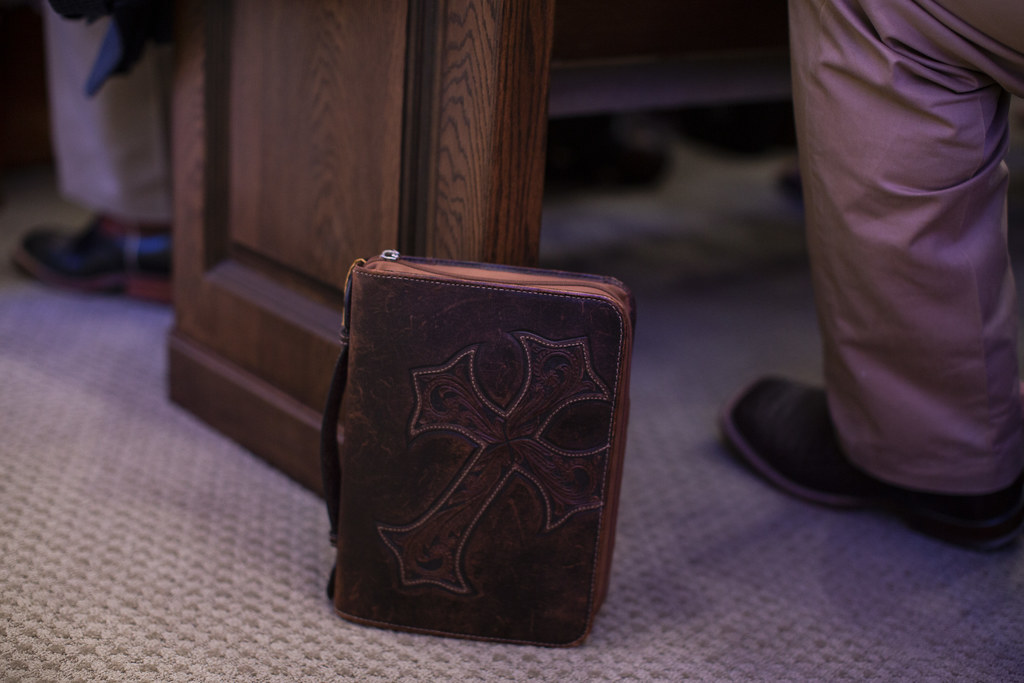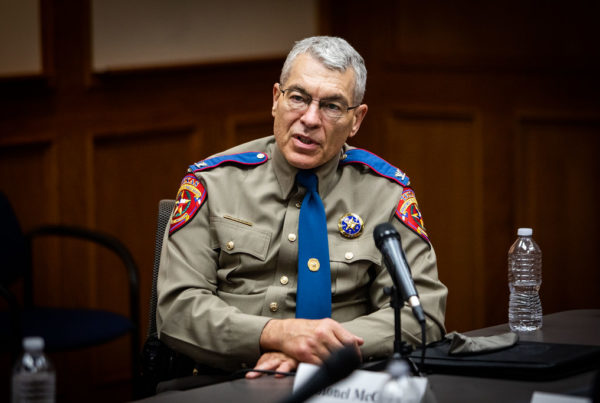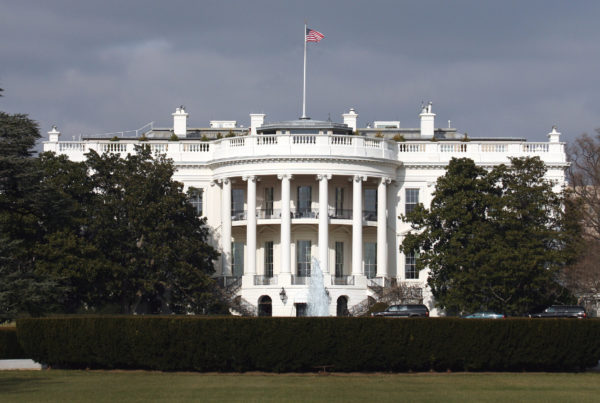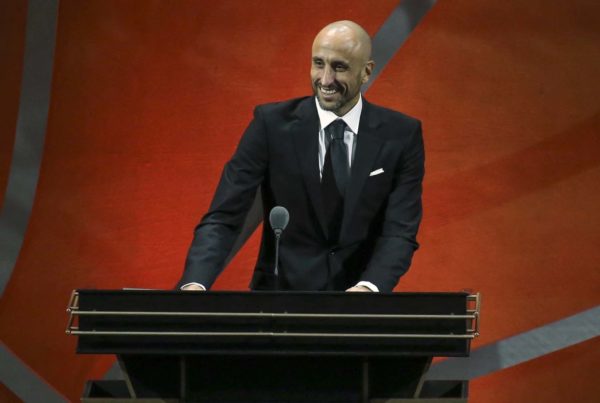Amanda Tyler is a Christian – a Baptist, in fact. She’s also a Texan who grew up in Austin. But she says intertwining Christianity with American values is problematic and that the Jan. 6 insurrection is an example of that.
Tyler, the lead organizer of Christians Against Christian Nationalism and the leader of the Baptist Joint Committee for Religious Liberty, spoke with Texas Standard. Listen to the interview above or read the transcript below.
This transcript has been edited lightly for clarity.
Texas Standard: How do you define Christian nationalism?
Amanda Tyler: I define Christian nationalism as a political ideology and cultural framework that tries to merge our identities as Americans and Christians. So Christian nationalism suggests that to be a “true American,” one must be Christian – and truth be told, a certain kind of Christian that espouses certain positions on moral issues and in politics.
This is a topic that seems to sort of come back in waves – was America founded as a Christian nation? As a Christian yourself, how did you come to think about this quite a lot?
I lead a Baptist faith-based organization that fights for religious freedom for all people. And you’re right that we’ve seen a recurrent narrative of the mythology of a Christian nation. And when people talk about America as a Christian nation, they normally do not mean that in a demographic sense, as a majority Christian nation, but rather from a historical position, that the country was founded by Christians in order to privilege Christianity, and that Christian values, or sometimes Judeo-Christian values, are woven into the fabric of our founding documents. And this story – this mythology – goes against the very text of the Constitution, a constitution that mentions religion exactly once, and that is to prohibit religious tests for public office.
In Texas recently, we’ve been following the back-and-forth over a new law that requires public schools to prominently display “In God We Trust” signs if they’re donated. What’s your perspective on this issue?
Well, I think this is an example of Christian nationalism being put right into our public schools. And it’s concerning because it is targeted at our most impressionable neighbors: children in public schools. This is a recent law that passed in Texas, but it’s part of a multiyear effort from something called Project Blitz, a project of the Congressional Prayer Caucus Foundation that’s promoted bills exactly of this kind from their model legislation playbook. And why this is so problematic is because it sends this message that to fully belong in our society and in our public schools, that one must have a certain religious perspective.
Do you see this as especially critical right now, or is this just part of the ongoing back-and-forth over the role religion should have in American life?
Christian nationalism has been a pervasive and persistent ideology in American history. But over the past several years, I think we have seen a building up of Christian nationalism in ways that are increasingly violent, but also in threats to American democracy itself, as we saw on Jan. 6 at the Capitol and how Christian nationalism intensified the effect there. So I do believe that this is a particularly critical time for those of us, Christians or not, who are alarmed about Christian nationalism to get more information and to speak up for their neighbors.
And those are some of the reasons that the people that I work with at Baptist Joint Committee, working with our ecumenical neighbors, set up something called Christians Against Christian Nationalism three years ago. And that’s a place where people can get a lot of information about exactly what Christian nationalism is and how to stand with their neighbors in their communities against it.
There are a lot of people who hold pretty strong opinions about Christianity and its role in American life that don’t necessarily go all the way to what you’ve defined as Christian nationalism. What do you tell them when they see what you do as undermining some of their own values?
Well, I would hope that they would understand, first of all, the difference between Christian nationalism and Christianity. That is part of the core of our Christians Against Christian Nationalism work: to understand that Christian nationalism as an ideology not only threatens American democracy and religious freedom for everyone, I think most acutely for our neighbors who practice different faiths and those who choose not to practice a faith, but it also threatens our faithful walk as Christians. And that’s because Christian nationalism can very quickly lead to idolatry when it causes us to confuse our allegiances to country and our allegiances to God. If we don’t stand up and say something, then we are accommodating it to a certain degree, and that only allows it to take deeper roots and to proliferate even more in our communities.













